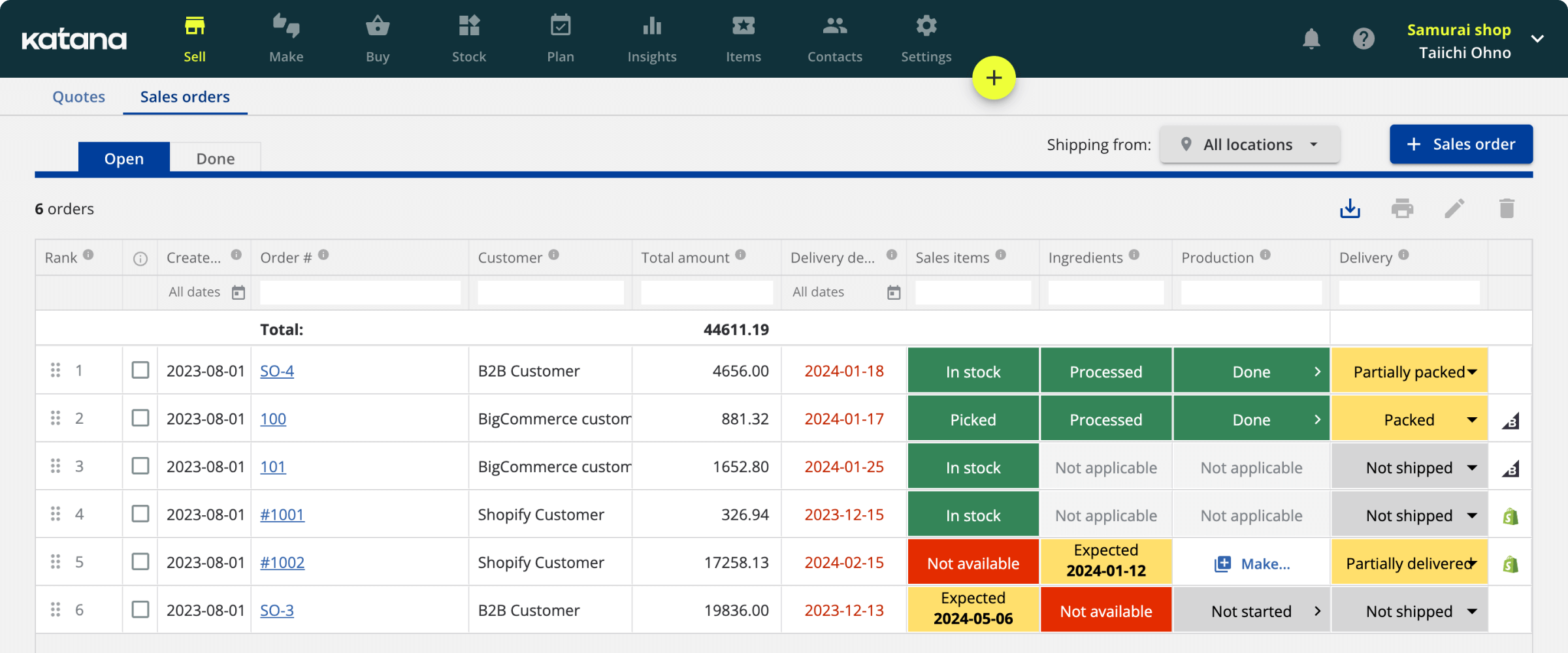Tales from Rivo, the Katana Debt Collector and Product Engineering Lead
Rivo Heinsalu is the product engineering lead for the Shop Floor Control team. He takes the time to sit with us to talk about how he became a developer, the culture at Katana, and gives us advice for new joiners.
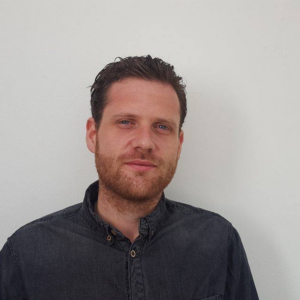
James Humphreys

Rivo Heinsalu, a software developer from the small town of Haapsalu — westside, represent — took some time out of his busy schedule to chat about his life and working at Katana.
But before we do, here’s a quick bio of Rivo. He’s a big watersport enthusiast. If you’re somewhere on the Estonian coast, you might catch him kitesurfing or sea trout fishing. Although you’ll later learn software development wasn’t his first chosen path, Rivo graduated with a bachelor’s degree from TalTech University as a software developer.
Let’s check in with Rivo and see what he has to say.

How did you get started as a developer?
You could technically say that I’m a failed architect.
After high school, I really thought I wanted to be an architect. So, I took drawing courses and went to these pre-courses before the exam to get into Uni. But I also had a backup option that perhaps IT could be a career choice for me.
Though at that time, I wasn’t thinking about being a software developer.
I played around with these two ideas, trying to decide what my future might look like, and I was starting to realize that perhaps I wouldn’t be the best architect.
So, while I was sitting an exam, I was drawing some very uncool-looking chairs, and I understood that I am very [ __ ] in an artsy way. Fifteen minutes into the exam, I just walked away and made my decision to study IT.
How did you come across Katana?
Another, let’s say, failure.
I switched jobs, but usually, you join as a junior, and it’s tough to get out from the pay and skill bracket because you are somewhat stuck. I wanted to widen my scope when I started as a front-end developer and get to back-end development. So, I was looking around, and I saw some bigger corporation opening their office in Tallinn.
I sent my resume and was pretty soon already on board.
But, two years there, I understood that the corporate way of doing things wasn’t for me.
I’d have no connections to the products. I delivered the code, and I didn’t know what would happen next with it. This became a bit bothering for me — I didn’t like the disconnect and didn’t feel any freedom.
I started looking around, especially for startups, since I wanted to work closely on a product delivering real value, no offense, but not another chatbot or anything like that.
I can’t recall where, but Katana had some test tasks, and if you completed them, you’d be contacted if successful.
I failed miserably.
But, a few days later, Priit got in touch and asked to meet with me. We met at the office, and I was quickly hooked by how clear their vision was and what they were doing. I guess my technical knowledge wasn’t so bad after all, or it was my personality that saved me.
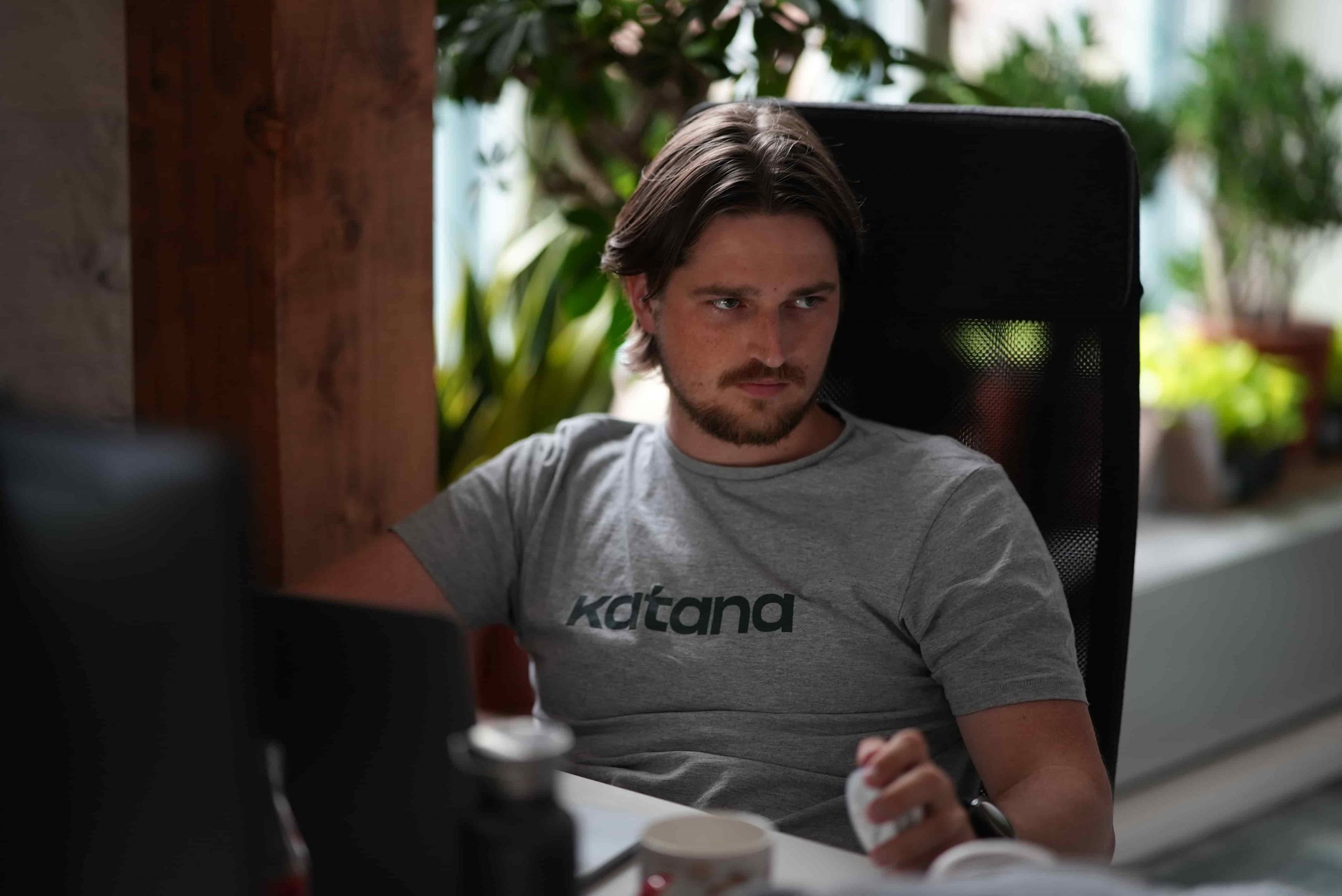
What are your day-to-day responsibilities?
My main goal is to make sure that our team works as one, but I still develop a lot of the code and features in Katana. I probably spend around 30% of my time managing my team and 70% coding.
But as an engineering lead, although I’m trying to keep everyone on track, at the same time, I try to push forward quite big decisions that might slow down our growth today but will be better for us in the long run. Usually, these involve technical challenges like breaking apart the main database to dedicated ones, data replications via Kafka, and so on.
Another responsibility is upcoming epics technical planning, so we have a technical vision about how to approach this when we later implement the next big feature.
What was it like in the early days compared to now?
When I joined Katana, it was a company of about seven or eight people?
I guess the problems back then were on a much smaller scale, and they only affected you, as the owner of those particular responsibilities. Now, if you mess up, you can make someone else in another team’s life harder. There weren’t so many blockers back then. If something happened, you could even have gotten it fixed before someone noticed.
Our mistakes early on have helped us create processes and set stricter rules to avoid making the same mistakes now we’re a lot bigger.
For example, once I accidentally cleared our staging databases. This was early on in so I was able to fix it. But it now means we have practices in place to avoid this happening again, which would be a whole other story if it happened today instead.
It’s been great being on this journey with Katana, seeing it grow from seven people to over 70.
I do miss getting the insights I used to get in the beginning. I mean outside of development. It used to be that I would know what content marketing, customer success, and management were up to from day-to-day. But now, if I tried to follow all the information from these departments, I would just go insane. So, it’s cool our weekly company meetings have managed to keep that transparency going.
What has been your proudest achievement at Katana?
Well, now you mentioned that again, I could say that resolving all my [ __ ] ups myself makes me super proud.
But, if I had to choose, we have super smart people in Katana, and many of them I consider much smarter than me. I’m not actually proud of something specific like technology-wise. But, I do enjoy that many people, old-timers, and others, trust my opinion and solutions, coming to me with questions about technical challenges and running their ideas with me.
It’s nice to be able to solve their problem perhaps and help them meet their deadlines faster.
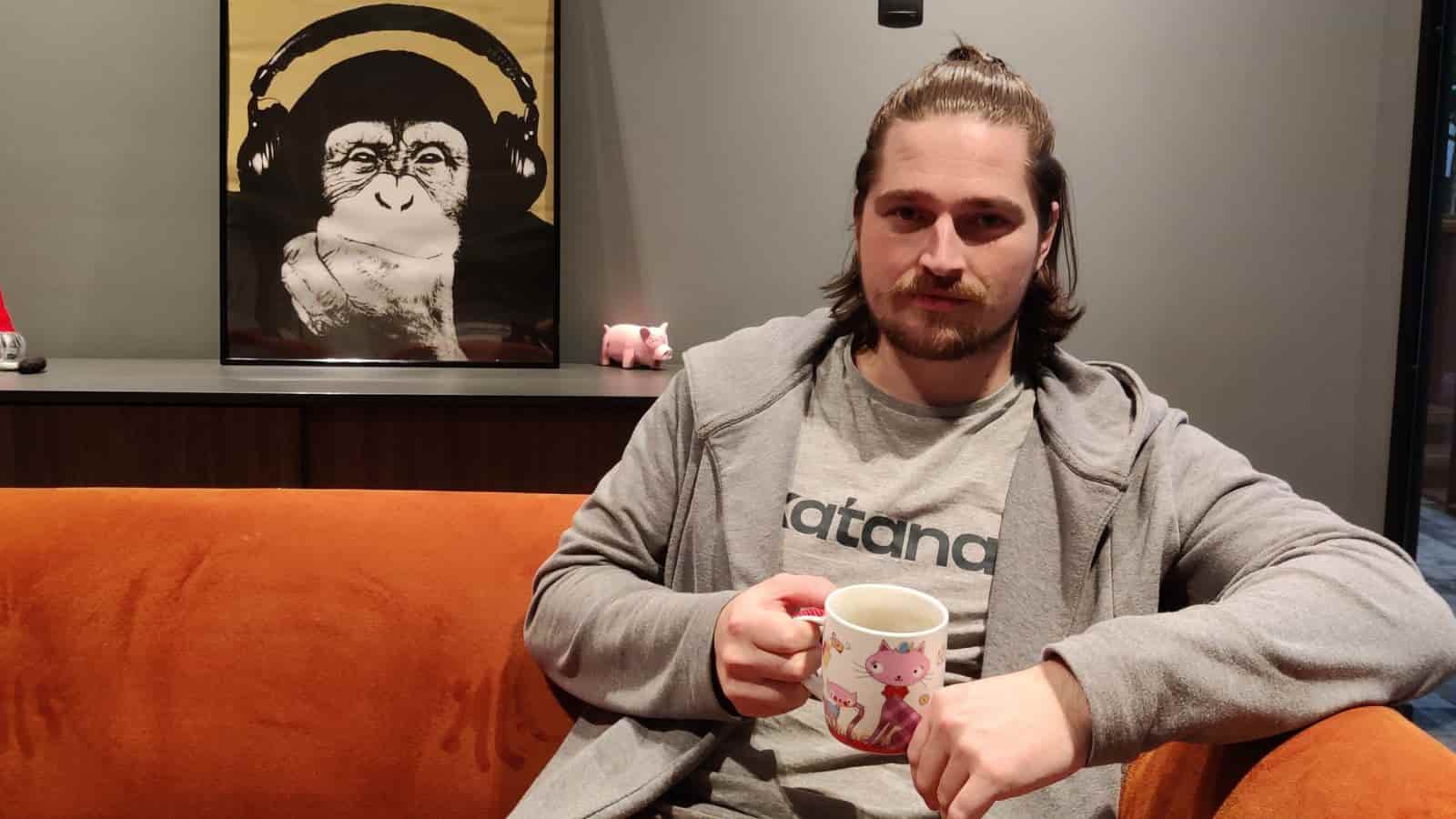
What does it mean to be a Katanaut?
It’s a little cliché, and everybody would say this, but the people surrounding me at Katana are amazing.
Though here we are, like a bunch of old friends sharing laughs. We still expect a very high output from everyone here since we work in such a fast-paced environment where everyone tries to give their best. And some even say they have a good work-life balance.
If you’re looking to grow as a person, or technically, or in your specific area, and have a say in what future manufacturing should look like, then now is the right time and place to be.
Some at Katana have called you the debt collector. Where did the nickname come from?
Long story, but it’s perhaps a position I have recently grown into. You could say I’m a self-made man, in Estonian a Hunt Kriimsilm (A character from an Estonian kid’s show, a jack of all trades).
I joined Katana as a software engineer, but soon I filled another position which is CFO. You could take the abbreviation as C-food officer. I started managing our Wolt lunch club, and people simply forgot to pay their debts, which led to hangry workers with low productivity.
It’s a serious job. If people don’t pay their debts, people go hungry, and so as the poster claims — violence first, think later.
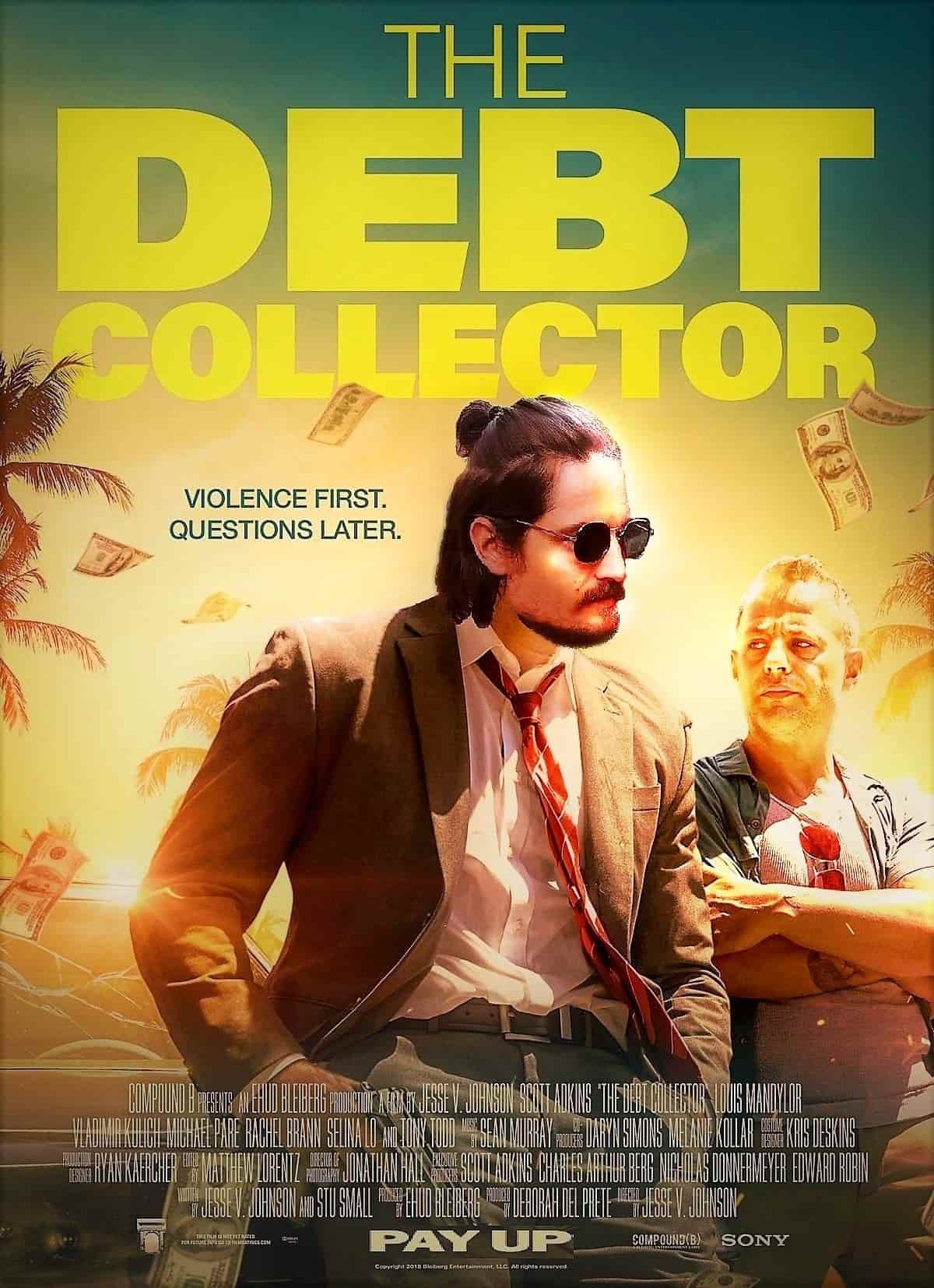
Would you rather have a third ear or a third eye?
I already have a lot of input, but not so much output.
If you were offering me a third hand, I would make a deal right now. But, if I have to choose from two of them, I would definitely go with the eye because I can close them and shut down. Or, if the third one is separately operatable, I can focus on Netflix while doing other stuff.
Would you rather be Batman or Ironman?
Iron man looks too shiny and too outgoing, like a bit of a playboy guy.
Bruce Wayne is more mysterious, walking in the shades and shadows. I do like some of the dark office, cave mood with dark IDE and everything. I would have to choose Batman.
Plus, I would get to talk like Batman too, he’s just cooler.
Would you rather go back to kindergarten with everything you know now, or know now everything your future self will learn?
Would I still learn something new in the future?
Good point
I would go with knowing everything now and still being me.
But, if I were as old as our CTO Priit, I would definitely choose to go back to kindergarten — I had to slip in some old Priit jokes somewhere.
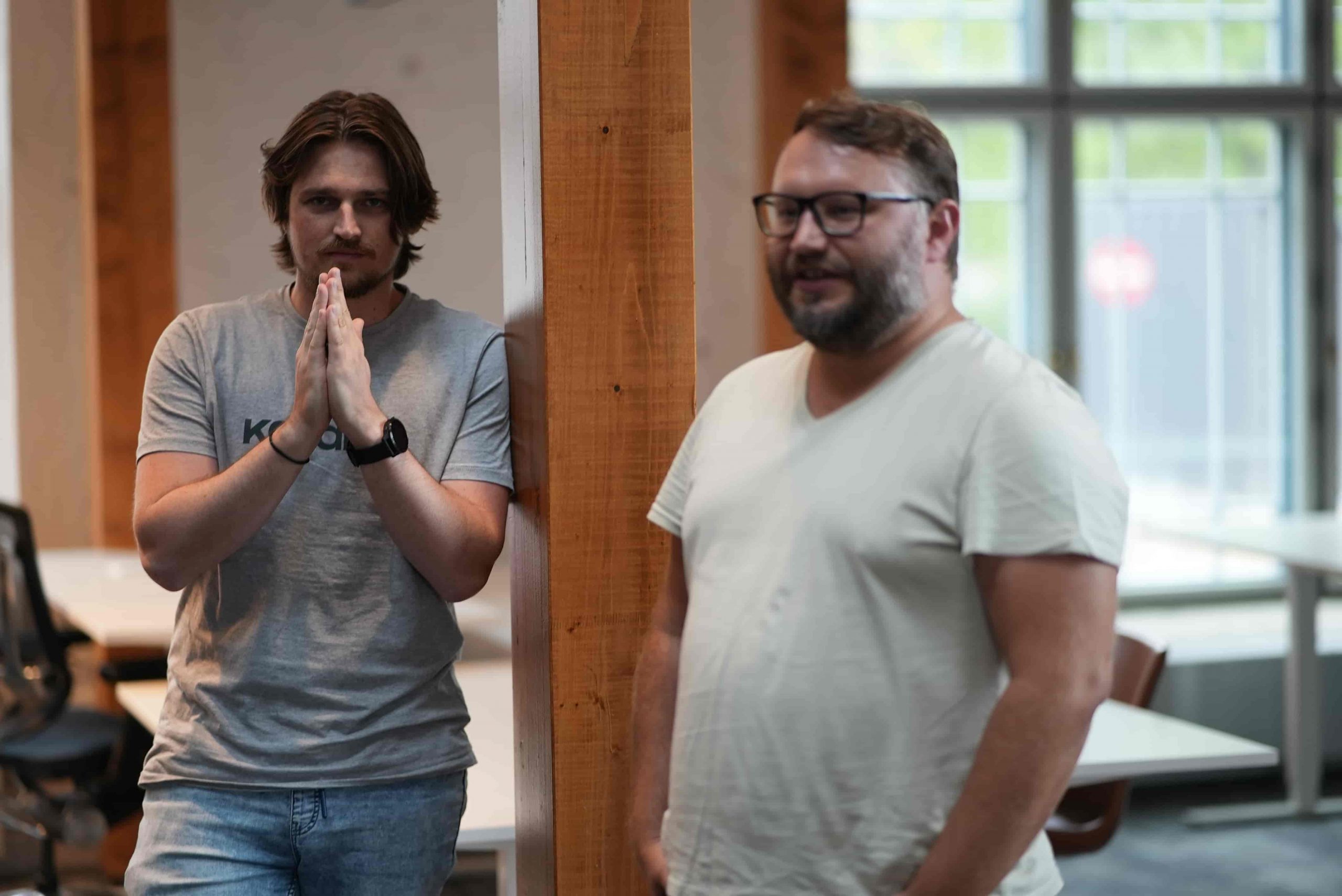
Become a Katanaut
We support 1000s of manufacturers bring their production to life. Come and grow your career today, here at Katana.

James Humphreys
Table of contents
Get inventory trends, news, and tips every month
Get visibility over your sales and stock
Wave goodbye to uncertainty by using Katana Cloud Inventory for total inventory control
